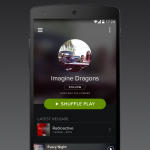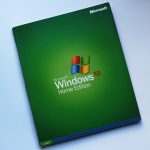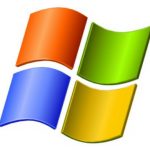Selling your smartphone online? You may be making a huge mistake

Buying and trading goods used to be so easy. If I needed a rake and my neighbor needed a hoe, we could simply swap. If I wanted to sell something, I would take out a classified ad in a local newspaper, like the Penny Saver. Hell, I bought my first car that way -- loved that thing.
Nowadays, buying and selling is much more complicated -- especially electronics. You can buy something from eBay or Craigslist only to find out that it doesn't work or is stolen. Smartphones and tablets can be risky to sell, because you have to remember to wipe your data before giving it to the other party. If you forget, the buyer can get your personal information and private photos. Forget to delete that sexy selfie that you took? Some weirdo from eBay now has it and will spread it around the net. Today, Avast announces that as a test it purchased 20 used and supposedly wiped phones from the net. The personal data recovered is shocking.
Do Android users really need malware protection?

Adrian Ludwig, lead engineer for Android security at Google, spoke to journalists prior to Google's I/O developers' conference and said that Android users who install antivirus and other security apps on their devices are no better off than those who don’t. The risk of potentially harmful applications is "significantly overstated" he believes, and there’s no need for anyone to install any form of third party protection.
"I think ... paying for a product that you will probably never actually receive protection from is not a rational reduction of risk -- but people buy things for lots of reasons", he said. Security expert Graham Cluley, who worked for Sophos for 14 years, disagrees. In a blog post he says Ludwig is "wrong, wrong, wrong". Two very opposing views. So who’s right?
The most popular stories on BetaNews this past week: June 15 -- 21

This is the week of the Surface Pro 3. Brian had already attended the launch event earlier in the month, and has provided an essential list of hardware and software purchasers need to grab for the best all round experience -- he even goes as far as suggesting that it's better than a MacBook Air. Even before launch there was an update available for the tablet-cum-laptop, and there was also news that the Intel Core i3 and i7 models would be shipping earlier than previously expected. But not all of the products we looked at this week were quite so "every day". There was the wifi doorbell complete with camera, and also the prospect of charging your phone wirelessly with your pants -- yes you did read that correctly.
The Windows Phone market is dominated by Nokia, but a new batch of handsets has been unveiled by Indian manufacturer Micromax. If Android is your mobile OS of choice, you may be thinking about venturing into the rooted world. This week a new tool was released that makes the process as quick and painless as possible, opening up a whole new breed of apps and options. Joe decided to take a walk on the wild side and adopt the Nokia Lumia Icon as his phone of choice. In the Android arena, a new contender entered -- the Amazon Fire Phone. Will a kill switch be added? Microsoft and Google have agreed to add it to their mobile operating systems.
How to avoid threats like Cryptolocker when browsing the web

Malware has, of course, been around for ages, predating the web itself by a long mark. Indeed, the first viruses were spotted way back in the early 1970s, on networks such as ARPANET, the forerunner of the Internet.
However, as the worldwide web grew, so did the ability to more effectively spread malware. Then the explosion in social networks led to social engineering, and increasingly more sophisticated scams came about -- for example, targeted spear phishing and ransomware -- leading us to the densely populated malware landscape of today, full of big bad nasties like Cryptolocker.
Hackers use terrible passwords too

Lots of people are putting themselves, as well as others, at risk by using weak passwords like their phone number, a loved one's name, date of birth, "password", "123456" or "qwerty". You would assume that those who can crack their passwords, or create malware, do not exhibit the same irresponsible behavior, right?
According to security company Avast, hackers are not much different from the rest of us. Sure, they may not use "123456", the most popular weak password of last year, but their passwords are not too far off, as the majority of them only contain lower-case letters. And, on average, a hacker's password is just six characters long.
The most popular stories on BetaNews this past week - May 25 -- May 31

No week would be complete without a little Windows news, and this week was no different. A registry hack emerged that should make it possible to receive updates for the no-longer-supported Windows XP right up until 2019. Microsoft later spoiled the fun by pointing out that it could lead to problems as the updates that would be made available as a result of implementing the hack would not be designed for regular desktop versions of Windows XP.
Last week we were wondering why it took eBay quite so long to warn users to update their passwords after a security breach earlier in the year. This week we discovered that it was because the company was under the impression that no user data had been accessed. Apple forgot to renew its SSL certificate, and in another Apple-related security story, a hacker managed to take control of iOS and Mac devices, and hold them ransom. To console itself, the company then splashed the cash on Beats Music -- Joe pondered whether this was just another indication of Apple's lack of innovation.
Adware comes to the World Cup 2014 through Android app

We are not far off from the proverbial kickoff of the 2014 World Cup. The tournament takes place this year in the South American nation of Brazil, beginning in June. With a major sporting event comes web sites and apps, letting folks follow all of the action. However, in some cases, not all is what it seems.
Avast researchers uncovered an app that, while not actually dangerous, is designed to feed you only ads. "Some of the Android gaming apps we downloaded primarily displayed ads instead of letting us play. Let me just point out a few from many. We were unable to play Corner Kick World Cup 2014 at all because it displayed nothing but a white screen, with ads popping up now and then", says Flip Chytry.
Spotify suffers security breach -- one user affected

In the light of recent events at eBay and Avast, when an Important Notice to Our Users appeared on the Spotify streaming music service's official news feed today you might have been forgiven for fearing the worst.
Oska Stål, CTO of Spotify writes, "We've become aware of some unauthorized access to our systems and internal company data and we wanted to let you know the steps we’re taking in response. As soon as we were aware of this issue we immediately launched an investigation". Read on, however, and you discover that only one user's data has been accessed and this didn't include any password, financial or payment details.
The most popular stories on BetaNews this past week: April 13 -- April 19

It's nearly a week since Microsoft ended support for Windows XP, but there are still around a quarter of Avast customers who plan on sticking with the old dog a little longer. What is perhaps more shocking is the revelation that over one fifth of those surveyed had no idea that support was coming to an end! For those living more on the cutting edge, good news came for Chrome users who found that their browser of choice gained support for Office Online. Microsoft may be leaving users of Windows XP out in the cold, but this is to be expected after so long. Users of Windows 8.1 who have opted to forego the pleasures of installing the recently released Update will find that their operating system is also not supported, as no further security updates will be made available until the confusingly named Update is used to update Windows 8.1 to Windows 8.1 Update. Got it? Good! Some business users who had trouble grabbing the download have been granted slightly longer.
Post Build, following Microsoft's announcements about universal apps for Windows 8.1 and Windows Phone, app prices are changing -- but consistency seems to be an issue. The hotly anticipated Windows Phone 8.1 was released to developers, but Mihaita was on hand with a guide that allows anyone to grab themselves a copy of the latest update. If you're on the lookout for a new Android handset, Joe puts forward a compelling argument in favor of the HTC One M8.
Windows XP user survey shows little hope for change

Last week was the much talked about XPocalypse, meaning support came to an official end for XP, despite a large number of users, both home and business, still running the operating system. It seems that this setback isn't doing much to daunt those users, either.
Security firm Avast has released a survey it conducted just before April 8th, and results will be disappointing to Microsoft. Many customers plan to stick it out with the aging platform.
Malwarebytes commits to lifetime support for XP users

The antivirus industry is getting steamed up about the forthcoming end of XP support. Last week we saw Avast warning of the vulnerabilities users might face.
Today anti-virus specialist Malwarebytes announces its new Anti-Malware Premium product and at the same time is pledging that it will continue to support XP users for life.
The most popular stories on BetaNews this past week March 16 -- 22

Not a good week for Microsoft this week. Things kicked off as Mozilla shunned the Windows Store by opting to stop development of a modern version of Firefox and then things got a little awkward following the investigation of an employee involved in leaking information about Windows. The company then came under fire for accessing the email account of an individual, despite its claims that "Outlook and Hotmail email are and should be private".
There was better news as an LTE version of Surface 2 went on sale opening up a new income stream for the company and new mobile computing opportunities for customers. More good news for users came when OneNote was not only released for Mac, but also made free for all platforms. Mihaita wasn't overly impressed with the Mac version, though.
Forced to use Windows XP past April? 10 ways to make the best of a bad situation

I've been pressing my day to day clients, as well as informed readers here on BetaNews, on the case for ditching Windows XP altogether. I'm guessing by now that chances are, if you're still running XP at this point, you're probably going to stick it out on the platform for the indefinite short term. I've already written about the best ways to safely migrate off XP without losing functionality in the workplace, but if you absolutely have no choice but to keep riding the sinking ship for now, here's hoping at least you are going to be smart about how you do so.
No, your PC is not going to explode, implode, or just stop working come the April cutoff date Microsoft has set. In fact, your system is probably going to continue humming away as usual. But it's what you can't see that will hurt you the most, and that's what XP holdouts are forgetting: the bad guys are arming themselves to the teeth with exploits, just waiting for April 8 to come and go.
Americans like it for free but Europeans still prefer to pay for protection

Independent testing group AV-Comparatives has released its 2014 Internet Security Survey.
The survey asked 5,845 users from around the world their views on security and reveals that when it comes to antivirus protection Americans like to get it for free whilst Europeans prefer to pay.
PassMark Software reveals best-performing 2014 security software

PassMark Software has released its 2014 Consumer Security Products Performance Benchmarks report, the results of in-depth testing on the speed and impact on your system of 16 leading security packages.
First place in the security suite test went to Norton Internet Security 2014 for its excellent scan times, fast launch, and minimal effect on other applications and PC tasks. Kaspersky and Bitdefender Internet Security 2014 were second and third, while products from Avast, G Data, McAfee, Panda and Trend Micro trailed behind.
Recent Headlines
Most Commented Stories
© 1998-2024 BetaNews, Inc. All Rights Reserved. Privacy Policy - Cookie Policy.